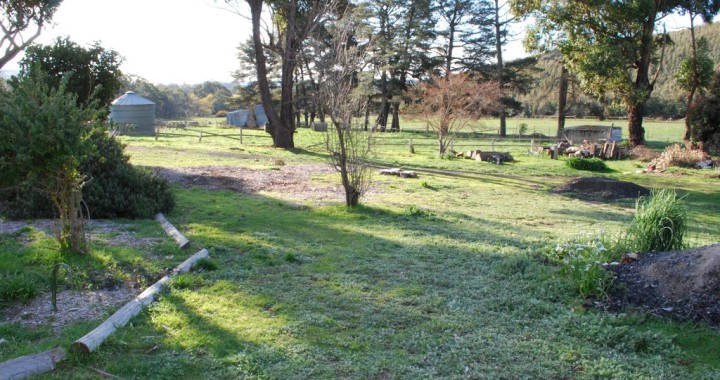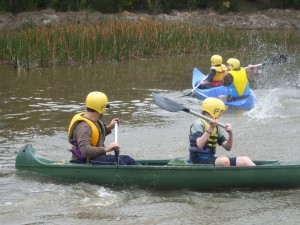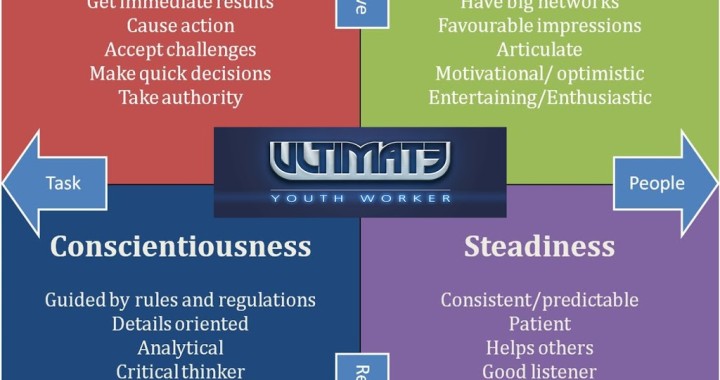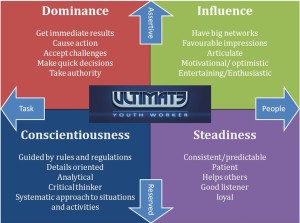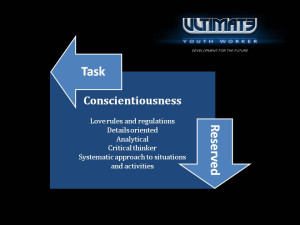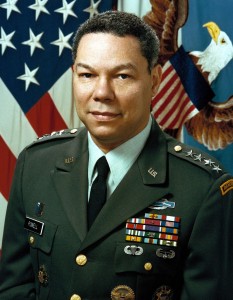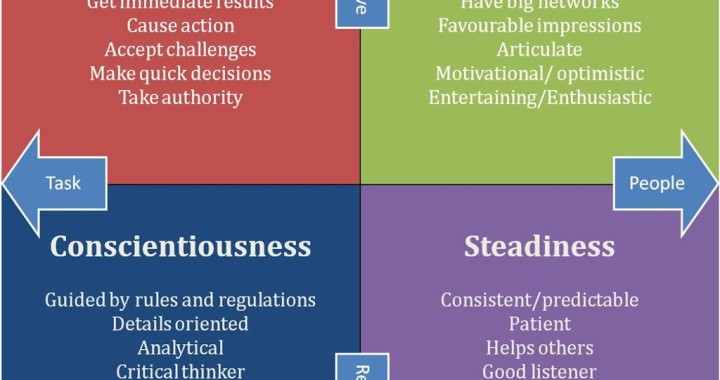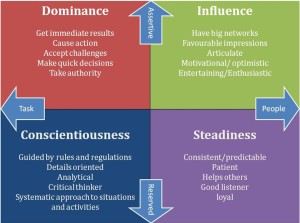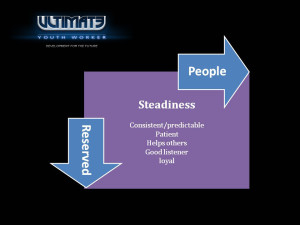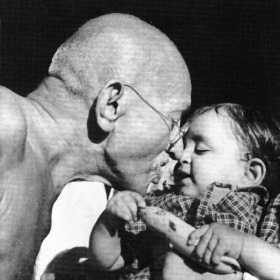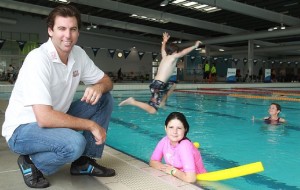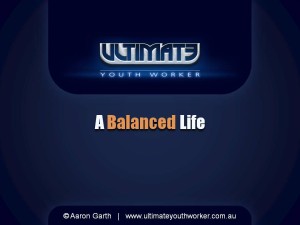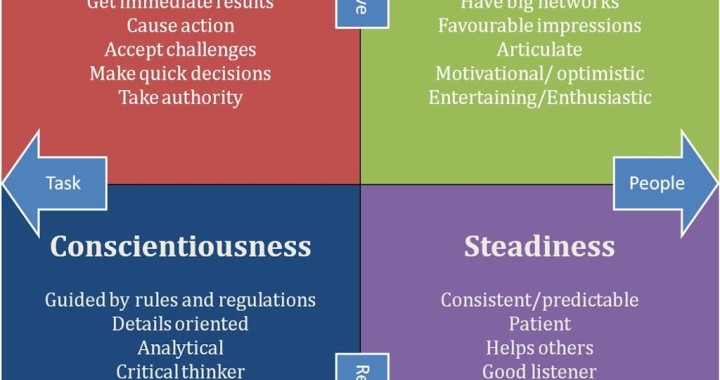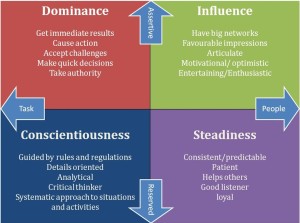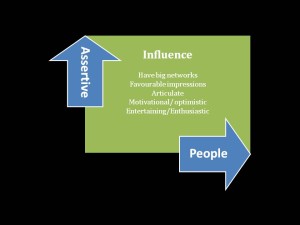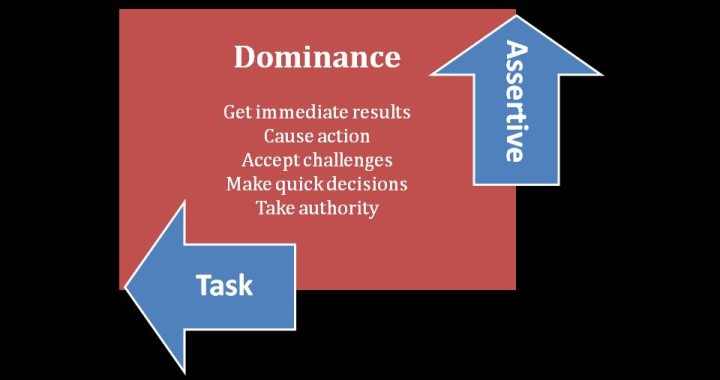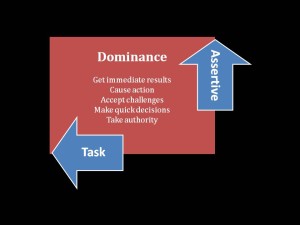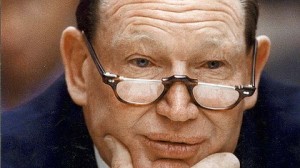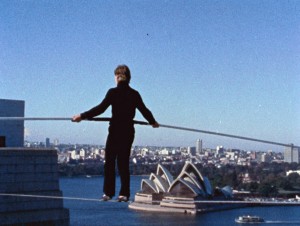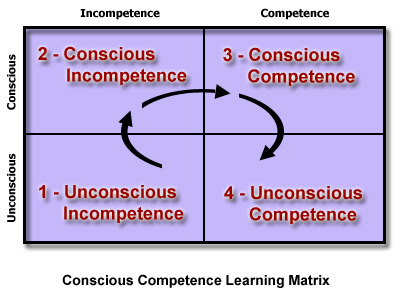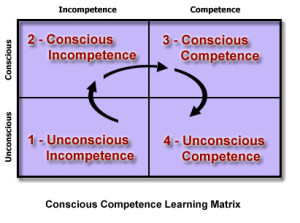Tag Archives: Youth Worker
All too often in youth work we are forced to commit ourselves to shallow engagements with young people. Whether because of funding, policy or staffing constraints we are required to put aside relationship building to satisfy paperwork for bureaucrats. More and more young people are crying out for real support from youth workers, and more and more the squeeze of the bureaucrat tears our loyalty and professionalism in two. How can young people trust us when we can’t offer them the basis of trust…time?
In my mid twenties I was seconded to a small rural drug and alcohol rehabilitation centre as their Assistant Manager. I was excited. However that excitement barely lasted my first week. I was tasked with transforming the service into a dual diagnosis rehabilitation facility by our government benefactors within very stringent time lines and policy environments. One of my constraints was that a maximum stay with our service was eight weeks with many young people leaving before the sixth week. The government saw this as young people having an inability to stick at rehabilitation. I saw young people who did not trust the staff and could not develop lasting relationships in six weeks being oppressed by a system set up to help them.
I advocated for a change to our constrained time frames and was blocked. We showed client feedback and were countered by vagueties and innuendo. We even provided cost benefit analysis to the minister showing the need. Nothing. The idea of engaging with young people beyond a surface level was one which we just could not get the bureaucracy to understand. This led me to become as Schwartz and Sharpe (2011) a canny outlaw, Trading conventional wisdom for practical wisdom. I found every opportunity to keep a young person on for a second stay. I developed links to supported accommodation and provided staff to outreach to the young people. My rationale was that if we were to really effect change in our young peoples lives then we had to gain their trust and that required a deeper engagement than six weeks could provide. It was during this time that I began to develop my understanding of the need for deep engagement as a pillar of successful youth work practice.
Young people are seeking genuine care from youth workers. Care built on developed trust. To build this trust we must share life with our young people and this can only happen by spending time with them. I have worked in many corners of the youth sector, government departments, residential care, family services, homelessness and ministry; the same issue exists in every one of them. Policy constraints, lack of funding and a lack of trust from our young people. If we wish to turn the tide of societal disintegration we have to step into the gap. Our identity as youth workers places us in that gap. We believe that young people should have every opportunity to develop and the best way for that is to engage as deeply with them as possible. Sharing in their struggles, triumphs and developing a trust that can only come from a shared path.
We are accountable to many stakeholders as youth workers. In this role we must hold our accountability to our young people as our highest duty. To provide the best practice possible to our young people we must engage deeply and build trust. But how do we do it I hear you say? It is no easy feat. We will have to move counter culturally to the norm of current youth work practice. We must spend more time with our young people in meaningful activities rather than one hour appointments.
Deep engagement is difficult in our current service system however, it is the only way to build the foundation to work with young people to change their trajectory. Deep engagement is the benchmark for youth services provided by the team at Ultimate Youth Worker. It is also the central concept in all of our teaching, supervision and coaching around client engagement. We believe this so intensely that we routinely pass up work that is not geared towards enhancing engagement with young people. This is our number one imperative when working with young people. If you are not willing or able to engage deeply with young people do not engage at all!
In coming months we will discuss how to engage deeply with young people, however it may require you to shirk the ‘rules’ imposed on you. Are you willing to become a ‘canny outlaw’ to support young people more effectively?
You can also leave us a comment below or post a comment on facebook and twitter.
Observe the C in DISC for youth worker’s
Over the last five weeks we have looked into the best tool we know of to help people build relationships with people the DISC behavioural profile. So far we have looked at three of the quadrents DOMINANCE, INFLUENCE and STEADINESS. This week in our ‘Thursday Think Tank’ we continue with the final quadrant in the profile and an overview of the CONSCIENTIOUSNESS behavioural style. People with this style are usually reserved and task focused.
Mr and Mrs facts and figures. People with high CONSCIENTIOUSNESS in the group are the epitome of dot your I’s and cross your T’s. They are slow to speak but when they do it is meticulous and ordered. They focus on task and process. They respect people who are precise and accurate. They often have a sterile work space. They are time conscious but not restrained by it. They are hard to read when it comes to body language and above all else want to be right! If these guys were a slogan they would be HTC: quietly briliant.
A person with a high level of CONSCIENTIOUSNESS in their profile is a rule follower. If there isn’t a rule they want one created. These people are usually polite and diplomatic. They will often communicate in writing over face-to-face. They do not focus on big picture but get down in the weeds, the detail. No abstracts or opinions here, They only discuss the facts. A high C can often get stuck in the old ways of doing things and systems of old and would rarely act without a precedent.
A high level of CONSCIENTIOUSNESS can lead to giving in to avoid conflict. They can be slow to act and do not see the forrest for the trees. They see the problems and can be critical of others. To make a decision these guys need every piece of information and every avenue of thought to be addressed… even then if there is any risk they may not act. They are thorough and persistent. They are matter-of-fact which can come accross as abrasive.
A high level of CONSCIENTIOUSNESS can lead to giving in to avoid conflict. They can be slow to act and do not see the forrest for the trees. They see the problems and can be critical of others. To make a decision these guys need every piece of information and every avenue of thought to be addressed… even then if there is any risk they may not act. They are thorough and persistent. They are matter-of-fact which can come accross as abrasive.
Here are our top seven tips for working with people with CONSCIENTIOUSNESS behavioural traits:
-
Give clear expectations and deadlines: If you want a decision tell them that. Be clear about the time frame too. Don’t extend your timeline be clear that a decision needs to be made and when you want it done by.
-
Show dependability: Let them know that you depend on their work and that they can depend on you to support them.
-
Show loyalty: Back them whereevr you can. These guys don’t like conflict so will not argue with you if you go against them, they will just withdraw. If you can, Show them you are on their side.
-
Be tactful and reserved: Even if you are going to go with another idea be supportive of them. They are not party animals so tone it down and focus on their knowledge and expertise.
-
Honour precedents: If something has worked in the past and they bring it to your attention try to run with their idea. If there is a rule in place, even if it is unwritten, be aware and open to following it.
-
Be precise and focused: this is similar to number one, however is more about how to do it. Do not leave any ambiguity. Be clear consice and if necesary say it twice. Set SMART goals and require them to report on their actions. Send your request in an email… they’ll love it.
-
Value high standards: These guys expect perfection and then attempt to deliver it. When they want to have it perfect but you have a short timeframe express your thanks for their standards but explain the need for brevity. Hold it in high regard. Praise them for their effort. Let them know you still expect the highest possible quality within the timeframe.
Some well known high CONSCIENTIOUSNESS behaviour holders you may know and have seen.
Colin Powell
Mr. Spock
Bill Gates
Kevin Rudd
Fred Hollows
James May
If you haven’t yet sign up for our newsletter to find out all the goings on at Ultimate Youth Worker. The form at the top right of this page is all you need to do.
You can sign up to have our blog posts sent straight to your email by adding your email to the subscribe button on your right.
You can also leave us a comment below or post a comment on facebook and twitter.
Accountability through ongoing learning
Throughout my career I have met hundreds if not thousands of youth workers with varying levels of expertise, varying knowledge bases and within differing organisations. Whether they are eighteen or eighty (yes I have met an eighty year old youth worker) they all brought their understanding and experiences to their practice. The ones who I respected the most were the ones who had the guts to say they didn’t know something and asked how to do it. Whether it was looking at a new theory and not knowing how to translate it to theory or developing a program and not knowing the best evaluation methods recognising your limitations and seeking to gain education to fix this is the mark of a true Ultimate Youth Worker.
Recently I have met a handful of youth worker’s who have spent more than a decade in the field. These youth workers are in positions of leadership throughout the sector. They also have a limited understanding of youth work basics. They do not hold qualifications and believe that their knowledge level is ok. These workers are not held accountable for their practice by anyone. Because of their lack of accountability these youth workers have not been required to develop their skillset, their practice or their ethics.
One such worker stated to me that after thirty years in the field she did not know how to evaluate a program properly. She followed that comment up by saying that it was ok because she would leave program evaluation to her staff. I don’t believe that you need to know everything as a supervisor but you should have a basic level of understanding. This worker did not see her deficit as needing to be addressed. If she had stated that she wanted to know how to evaluate a program or that she was looking into some articles about evaluation this post may not have been written. We need to aim for excellence in youth work. We owe it to our clients, coleagues and community. Anything else is slack.
The fact is it is easy to fix. I do not know everything. I am the first to admit it. The rest of the team hear at Ultimate Youth Worker do not hold the ticket of all knowledge. Together we are not bad but we still don’t know it all. But we do ask questions, we read widely and attend every piece of training that we possibly can. The first step is to identify where there is a deficit in your practice. The second step is to seek a way to fix this deficit and to be a sponge of any knowledge you can find to aid you in this mission.
 |
| A way to get your professional learnings right on your phone, tablet or computer |
Until recently I had never written a social media marketing plan. I spoke to friends and colleaguews in the communications field. I read articles and blogposts and anything else I could get my hands on. I spent endless nights slaving over the keyboard and eventually I wrote my first social media marketing plan. I have also been working with a young youth worker who is developing his first project proposal. When we first spoke about what it would entail before he could open the doors to his first project he almost fell off his chair. The task seemed so big. It was unknown. A few chats and a couple of articles later and the task didn’t seem to scary. Knowledge is a powerful tool.
The other side to this coin is to have someone who will keep you accountable to ongoing learning. If you are blessed (or cursed as I may be) you may have multiple people who get you to think about multiple areas of your practice. The point is you never become an expert… you just become a life long learner. The education of an Ultimate Youth Worker is a life long commitment and a duty to be fulfilled. But more on that next week.
If you haven’t yet sign up for our newsletter to find out all the goings on at Ultimate Youth Worker. The form at the top right of this page is all you need to do.
You can sign up to have our blog posts sent straight to your email by adding your email to the subscribe button on your right.
You can also leave us a comment below or post a comment on facebook and twitter.
Observe the S in DISC for youth worker’s
Over the past few weeks we have been looking at the DISC behavioural profile and its use for youth worker’s in developing relationships and networks. So far we have discussed the EXTRAVERTS of the group and we continue on with the PEOPLE focused groups today. This week in our Thursday Think Tank we continue with the third quadrant in the profile and an overview of the STEADINESS behavioural style.
STEADINESS is the nurturer of the bunch. The motherly figure. The thrive on small talk. They are the first people to ask you how you are going. They prefer to ask rather than tell. They love to listen rather than talking. They are the slow steady deliverers. Those that have a STEADINESS profile are often reserved and speak with a lower volume. These people will use first names and speak with a warmth that is genuine. STEADINESS behaviours tend to prefer speaking one-on-one rather than to a group. They speak calmly and methodically and are often seen as the steady ship when all around is chaos because they proceed carefully. These people often have photo’s all over their desk, are embarassed when praised but are the first to celebrate others and seem to be everyones friend. On the negative side they are often resistant to change, have difficulty prioritising tasks and sticking to deadlines. They struggle with systems and struggle with presentations and believing that their part in the grand scheme really is worthwhile. If these guys were a slogan they would be Optus: We hear you.
.
A person with a high level of STEADINESS in their profile speak rarely. They want to check on how a decision will affect others and are slow to impliment tasks particularlly if there is not a precedent. These folk are all about the story…all 18 volumes of it. They want to be part of the team and let everyone have a say. The saying you have two ears and one mouth so listen more than you speak was written by a high S. When they do speak though it is at a hundred miles an hour…they have a lot of ground to cover and not much time to do it.
It is hard to get a rise out of a high S. They epitomise the ostrich sticking their head in the sand. They shy away from any conflict as it goes against everything they stand for…Status quo and friends for all. They will rarely fight back, but if they do it is usually over the notions of justice and fairness. When they do fight back it is usually a quick explosion of how unfair an idea is and that as a person you are unfair because of your decision. It is also over as quick as they can make it happen as they want to get back to the way things were. Remember they are people persons.
Here are our top five tips for working with people with STEADINESS behavioural traits:
-
Be logical and systematic: These guys struggle with priorities and systems but they need to have a plan of action, otherwise they would spend all day around the watercooler or at a cafe chatting about your life. set clear boundaries and timelines for task completion.
-
Provide a secure environment: They do not like change! Make their environment as predictable as you can. Do not ask them to change thier password, move desks, do a rush presentation or lead a project that needs a quick resolution. Make them feel safe.
-
Tell them about change early: If there needs to be a change, pre-wire them early. Give them a heads up. Provide time for them to become comfortable with the idea of change. Walk them through it step by step and address their concerns.
-
Show how they’re important: If they do something great. Minimise your appreciation in public and be as sincere as possible in private. They struggle to feel their work is important so explain how they have made a difference.
-
Teach them shortcuts: If you let them run the show it will take two days to make a cup of coffee! The conversations will take up all their time. They want consensus and a clear picture of everything that needs to be done. The key thought here is do not make the perfect the enemy of the good.
Some well known high STEADINESS behaviour holders you may know and have seen.
Michelle Obama
Ghandi
Pope John Paul
Grant Hackett (Australian Swimmer)
Mother Teresa
Why youth worker’s need to embrace technology for professional development
Are we falling behind???
Are we becoming as obsolete as the home phone, the floppy disk or the hand held calculator???
Are we able to keep up with the rapid expansion of technology?
It used to be that if you needed your home stereo hooked up, your website developed or an email list for you group you could ask a youth worker and they would have an understanding of what to do…however rudimentary. However, over the past ten years I have seen an alarming trend towards a lack of technology use in youth work. Even worse, youth worker’s who do not have the skills to meet even the most basic of technological requirements.
A few years ago I was whimsically known in my organisation as ‘IT Support’. If any one in my team had an IT issue I was called in before we would call our organisations IT officer. How did I get this job you may be asking? Was it my years of study in IT? Perhaps because I was an avid gamer or computer nerd? conceivably, it was my years of university study where I used Microsoft Word on a daily basis. Actually, it was none of these! One day I helped my team leader to categorise and colour code her calendar. That is what made me the IT guru in my organisation.
Many of the ‘problems’ I was asked to fix in that team were pretty basic. As my wife says, it will ask you first if you really want to do something before you kill the machine. I fixed a few Word, Excel and PowerPoint issues and recovered a document or two, but nothing I would write home about. These skills were learnt by asking questions of people who knew more than me when I experienced those issues and then being able to remember what to do when it happened again. A small confession… I am the least tech savvy person in my friendship network.
With new technology coming onto the market every minute you would hope youth worker’s were at least keeping up, sadly if anything we are falling behind at an ever increasing speed.
With new technology coming onto the market every minute you would hope youth worker’s were at least keeping up, sadly if anything we are falling behind at an ever increasing speed.
Over the past few months I have read dozens of articles which lament the current situation and then implore people in the sector to embrace technology. Speaking of not-for-profit marketing Andy Lark, Chief Marketer for the Commonwealth Bank in Australia said “Ten years ago, if someone had said there would one day be no more record stores or book stores, you wouldn’t have believed it. We will be the last generation to use a keyboard and a mouse. Technology is the force that changes everything.” Neelie Kroes, European Commission Vice President said, “Europeans are hungry for digital technologies and more digital choices, but governments and industry are not keeping up with them.“ Even former US Secretary of State, Colin Powell, believes technology is the way of the future and that if we do not take these innovations seriously we will be in trouble. So if some of the key thinkers in the world believe that we need to embrace technology then why are we as youth worker’s falling behind?
There are a few reasons we at Ultimate Youth Worker believe that as a sector we are falling behind:
-
Our organisations. Organisational policies and procedures have become quite stringent as a knee-jerk reaction to possible legal and ethical issues which arise from the use of technology
-
Technology is changing so fast it is hard to keep up. If you do not devote time to seeing what is out there you can not keep up to date.
-
Technology costs money. I worked in an organisation two years ago that were still running windows ME on their computers which were ten years old!!!
-
It is not seen as a priority compared to face to face interactions with young people. Every day in Australia young people aged 15 and over spend approximately two and a half hours on the Internet. That is more than they spend with me as their youth worker!
So if it is important to our interactions with young people we should learn a bit about it right???
I was recently given the unpublished results of a survey from the UK where youth workers were asked how they preferred to take on professional development. No surprises, we prefer face to face contact. The biggest surprise for me though was that using technology to gain professional development was ranked lowest of 18 possibile choices. A cursory look at some of our social sector colleagues shows that their use of technology for professional development is expanding. The Australian Psychology Society and the National Association of Social Workers in the US provide great online training opportunities for their members however, the world across there is little for youth worker’s. This MUST change!!!
Here are a few reasons this can and should change.
-
Web based training is cheaper than other forms available. If and average worker is on $20 and hour and they attend a half day seminar that goes for 4 hours it costs the organisation $80 before they even get there. lets say it is in a major city and your organisation is in the outer suburbs, roughly an hour each way by transport is another $40 in lost productivity. Train tickets or petrol =$$$. Then there is the cost of the training. Is it catered, add more money. The average half day seminar in Melbourne currently goes for around $120.
- The equation looks a little like this:
- Conference attendance/lost productivity = $80
- Transport/lost productivity = $40
- Transport costs = $???
- Parking = $???
- Seminar cost = $120
- Catering = $???
- Total cost =$240+transport
- Same seminar done online =$200 (no transport costs, no catering etc.)
-
It is easier to attend. If your seminar is from 10am-2pm you can get to work at 9am and spend an hour catching up on emails. at 2pm when the seminar finishes you grab a bit to eat and are back at your desk by 2:30pm (and you had a snack or two at your desk while you were at the seminar). All you need is a computer with Internet access and a headset with a mic. Also you can attend training on the otherside of the world with great trainers just by getting online…No need for a $1000 plane ticket.
-
Online seminars provide handouts etc online. Whether you are at a webinar, listening to a podcast or watching a pre-recorded PowerPoint most providers also give you access so that you can go again and print/save documents for future reference.
-
Your boss won’t think you are playing hooky. From our experience we have found that many bosses struggle with sending staff to PD because they have issues with trusting that you will be there the whole time and actually pay attention. It is usually not because you have given them a reason but they are remembering what it was lie for them. If you are in your cube or office and you are visibly doing your training then there is no reason to doubt you.
These are just a few of our thoughts, we know there are many more. Obviously we are biased. We write a blog for youth worker’s because of the lack of available professional development. We use social media including Facebook, Twitter, LinkedIn, Stumbleupon and Pintrest to further the networks and development opportunities for youth worker’s who want to become the best they can be. We believe that online is not only the best but the only way forward for us as a sector seeking excellent professional development.
To that end we wanted to let you know what we have been up to for the last couple of months and what it means for you our loyal readers. Recently we asked you to complete a survey for us (if you haven’t there is still time) this has cemented our ideas on professional development needs in the sector. We have been getting our heads around some technology to provide some opportunities for exceptional, inexpensive, online professional development for Ultimate Youth Worker’s (if you want to better yourself you are one!). We have also been writing up our training packages to support your needs.
So what does this mean for you as a youth worker?
In December we will be launching our first ever webinar to support youth worker’s to develop a self care plan. Stay tuned for a date closer to the event (hopefully first week in December).
In late January/early February we will be launching our podcast. We are currently recording and are getting some amazing guest hosts to provide inspirational and informative content to support you and your practice. Stay tuned for our official launch party!!! Its going to rock.
Of course we will also continue to provide our social network with challenges, inspiration and questions so please get on board and like, follow or pin us where you can, and PLEASE tell your friends and colleagues. This revolution in youth services support can only happen with your involvement and a swell of numbers.
Thank you for your support and encouragement so far. If there is anything we can do to support you please let us know.
Aaron
Observe the I in DISC for youth worker’s
Last Thursday we began a looking at the individual quadrants within the DISC behavioural profiling system with “Observe the D in DISC for youth worker’s“. We are half way through our overview series and hope that you have been able torecognise some DOMINANCE behavioural styles in those around you. In this blog we continue the series with an overview of the INFLUENCE behavioural style.
One of the most exciting behavioural style to be around (and it is my secondary behavioural style) is that of INFLUENCE. The social butterfly or life of the party, people with thisbehavioural type often have large networks and seem to draw people to themselves. They are talkative, they over communicate, are born performers, are style setters, in teams they are the idea generators and they are very quick-witted. They are the most enthusiastic and active people you will ever meet and develop relationships quickly. They are fast starters and begin project with gusto. All of these positive adjectives are often linked to a person who is exhibiting a INFLUENCEbehavioural trait. On the other hand you have probably seen their negative behaviours as well. They work off intuition without reason. They can be highly emotional. They are sporadic and scattered. They start fast but rarely finish. They have too many projects on the go. If they were a slogan they would be Nokia: Connecting People.
A person with a high level of INFLUENCE in their behaviour speaks in a way that about 75% of us struggle to keep up with. They sell ideas with an inspiring style. They talk a lot at the 50,000 foot view but struggle to get down in the grass. They avoid bringing up difficult subjects but give good constructive feedback. They enjoy interaction and focus on the feelings of their subject intently. They get enthusiastically involved in discussions and often talk too much. They may not assess what is being said and can loseconcentration and get sidetracked easily. They speak in stories and anecdotes often from personal experience. They are prone to exaggeration and when excited they speak really fast and approachyou closely using lots of facial expression.
Most of us struggle to get a word in edgeways with a High I and we are confronted at the speed and tangential thinking present in their conversation… but we do enjoy their conversation. They do respect a smile, a pat on the back and seven conversations at once. So how do we work with these people when their excitement is off the charts and you are not really sure which conversation you are having with them?
Here are our top six tips for working with people with INFLUENCE behaviour traits:
-
Approach them informally. These guys and girls hate feeling constrained. A meeting in an office with suits and ties and a policy document may just make them explode. A brief chat on the way to lunch or even a confab at their desk is the best way to get them on side. Do not start with facts and stats or a policy document it will make them throw a toddler tantrum.
-
Be relaxed and sociable. Even if you need to pull them into line be chilled out. These guys take their reputation seriously and if you are not sociable they will take it as a sign that you hate them.
-
Let them tell you how they feel and how awesome they are. Yes the sun doth shine from their backside and you would do well to acknowledge this with a hearty nod of the head. They are the centre of attention and you are a tool for propping up their ego. Whilst they care about people it is hard to notice them through their haze of awesomeness.
-
Keep the conversation light. Remember, they are up there in the clouds in the land of big dreams. It is a place where balloons pop very easily. You want to be a fluffy cloud and sharp grass. Details are the enemy. There is no pressure here. It should be like a trip to Tahiti.
-
Provide written details to focus their attention. As those with INFLUENCE behaviours can be flighty and forgetful write things down and get them to take notes. It also helps when they begin to go on a tangent if their KPI’s are written down as you can steer them back on course.
-
Use humour. Everything has a funny side… even paperwork!!! Try to lighten the mood by making a joke or finding a humourous take on the situation. If all else fails steal a Robin Williams skit. It will diffuse any tension and let them see you have a pulse.
Here are just a few people you might have seen on a TV that have INFLUENCE in their behavioural style.
Oprah Winfrey
Richard Branson
Dolly Parton
Robin Williams
Shane Warne (Cricketer)
Hamish Blake (Australian TV and Radio Personality)
Han Solo
Observe the D in DISC for youth worker’s
Last Thursday we began a Series looking at the DISC behavioural profiling system and discussed how DISC can help us to develop a behavioural lens to inform how we work with young people, our colleagues and other networks. Using the lens of DISC will help you understand peoples strengths and weaknesses, how to speak to them in a way that they will understand and warm to. This week we continue the series with an overview of the DOMINANCE behavioural style.
We are going to start with DOMINANCE as it is probably the easiest behaviour to spot (and it is my dominant behavioural style). You know the type. The jerk, the sore loser, Mrs self-centred, the poor listener, the steam roller, the irritated one or perhaps even Mr opinionated. All of these negative adjectives are often linked to a person who is exhibiting a DOMINANCEbehavioural trait. On the other hand you have probably seen their positive behaviours as well. They are the determined people, the strong willed, they get results when others struggle, they are fast thinker and even faster talkers, they take risks and get rewards. THEY GET THINGS DONE. If they were a slogan they would be Nike: just do it.
A person with a high level of DOMINANCE in their behaviour will often speak in a way that about three quarters of the population struggle with. They tell rather than ask. They talk more than they listen. They may be seen as pushy or even rude. They don’t beat around the bush and seek quick communication. They speak with an authoritative tone of control to assert their POWER over the situation. They are direct and forceful in their communication and impatient with pleasantries and meaningless pomp. They are focused on task and expect results. They are willing to get into trouble if it means getting thing things done in a timely fashion. People who have a dominance streak can rely on gut feelings over data and to many they are seen as mavericks.
Many people are scared of a confrontation with a high D. But that is the best way to deal with one. High D’s are blunt and demanding, they lack sensitivity, empathy and care even less about social interaction… They respect people who show the same qualities. So how do we work with these people when they seem so entrenched???
Here are our top seven tips for working with people with DOMINANCE behaviour traits:
-
Communicate briefly and as to the point as you can. If you are writing an email and its more than four sentences kill it or cut it down. If you call them and it lasts much more than a minute they will start to wrap it up. If you are chatting with them… Ha Ha I made a funny. They would never chat.
-
Respect their need for independence. Do not impose upon them unnecessarily. Use your role power sparingly if you have it and if you don’t have any then only stand up against them when it is absolutely required.
-
Be clear about rules and expectations. Whether in a team meeting or a group be clear about what is and is not allowed. Be unmistakable about the outcomes expected and how to achieve them.
-
Let them take the lead. They usually have innate leadership ability so where possible let them have it. They will probably try to take it anyway.
-
Show your competence. High D’s respect clarity and results. If you stuff around and then do not achieve you are painting a sign on your back. Do your tasks, lead the group whatever you do; do it to the best of your ability.
-
Stick to the topic. One thought at a time and if possible no sub points. Do not go off on tangents and for the love of God do not do a Grandpa Simpson.
-
Show independence. Stand up for what you believe and do not be afraid to express your opinion. Be more forceful. You will think you are arguing. They will think that they are finally having a worthy conversation.
Here are just a few people you might have seen on a tv that have DOMINANCE in their behavioural style.
Donald Trump
Hillary Clinton
General Patton
Margaret Thatcher
Kerry Packer (Australian Businessman)
Russell Crowe (Actor)
Behavioural observation is the key to best practice youth work.
A few weeks ago we stated that we would look at how to develop a behavioural lensto inform how you work with young people and colleagues. A lens that will help you understand peoples strengths and weaknesses, how to speak to them in a way that will help you develop your relationship with them and ultimately strengthen your work with everyone you come across. This week we show you the framework.
A while ago I interviewed for a managementposition. One of my interviewers was someone that if I got the role I would supervise. In the interview I was able to answer the questions and got along well with two of the three interviewers. The third interviewer was a blank slate. I couldn’t read him at all. The worst part was that he was going to be my direct. I was freaking out and needed a way to break through their blank persona.
A few years earlier I was managing a youth drug andalcohol rehab. I had a young person come to us straight from jail with a personality bigger than Ben Hur. Everyone thought he was great, the life of the party. He was a lot of fun to work with, but he was also really frustrating. He never followed through on anything!!!
These are just two people and a snapshot of their behaviour, but I am sure you can all imagine people like this that you have come across. Before I was shown this simple but most important framework people showing these behaviours were extremely difficult for me to understand or work with. Afterwards, with a little work, I have become a better judge of character and supportive youth worker.
DISC
DISC is a quadrant behavioral model based on the work of Dr. William Moulton Marston (1893–1947) to examine the behavior of individuals in their environment or within a specific situation (otherwise known as environment). It therefore focuses on the styles and preferences of such behaviour. For most, these types are seen in shades of grey rather than black or white, and within that, there is an interplay of behaviors, otherwise known as blends. The determination of such blends starts with the primary (or stronger) type, followed by the secondary (or lesser) type, although all contribute more than just purely the strength of that “signal”. Having understood the differences between these blends makes it possible to integrate individual team members with less troubleshooting. In a typical team, there are varying degrees of compatibility, not just toward tasks but interpersonal relationships as well. However, when they are identified, energy can be spent on refining the results.
The four behavioural types are Dominance, Influence, Steadiness and Conscientiousness.
Those with Dominance and Influence behavioural types are more ASSERTIVE.
Those with Steadiness and Conscientiousness behavioural types are more RESERVED.
Those with Influence and Steadiness behavioural types are more PEOPLE focused.
Those with Dominance and Conscientiousness behavioural types are more TASK focused.
This graphic illustrates this more effectively.
Over the coming ‘Thursday Think Tanks’ we will delve more into these behavioural types and how they can help you to develop your emotional intelligence and practical wisdom.
In the meantime Stay Frosty!!!
Youth work boundaries: fuzzy or fixed???
Today I was speaking with some youth worker’s about the state of our profession in Australia and what is holding us back. One of the reasons which was put forward was that some people in the field struggle to implement solid boundaries. As we spoke about our respective youth work studies it became apparent that one area that was severely lacking was ethical boundary setting.
Throughout my career I have seen youth worker’s struggle along the spectrum of boundary setting from the laissez faire to the severely strict. Each part along the spectrum has its positives and its negatives so lets have a look:
laissez faire
The laissez faireyouth worker is everyones friend. They know everything about their young people and wear their heart on their sleeve. These youth worker’s will often work overtime, rarely refer on to other agencies and struggle with the idea of confidentiality. The laissez faire youth worker has unprecedented access to the young people and is seen as the cool worker, or the one who understands them the best. Initially these youth worker’s are praised for going above and beyond but eventually they are seen as just being to close to the young people.
The severely strict
This youth worker is seen as cold and calculating and has fixed unwavering boundaries. The young people they work with have given up so much information while the youth worker has deflected any questions of a personal nature. The youth worker uses “boundaries” as an excuse to not be personable. This type of worker is seen by the young people as the cranky mother type or the angry old man. The youth worker expects conformation to their rules… all of which are aimed at regulating the behaviour of young people. The severely strict youth worker will admonish you when you ask about their family or where they live. Their colleagues see them as distant and to involved in the work rather than the relationships.
The Balanced Youth Worker
The balanced youth worker has boundaries which are set but flexible for individual situations. These workers are clear about what they are not willing to do with a young person and flexible with how much they are willing to do within the remaining purview. These youth workers are seen by their colleagues as providers of individual services to individual young people. With some young people their boundaries are solid and with others they are somewhat looser. These youth workers are able to articulate why they are setting the boundaries where they are and what outcome they expect from setting them there. The balanced youth worker gives of themselves to build relationship but does not share it all. They are not guarded but are wary of not placing their burdens on the young people they work with.
These are just three of the possible points on the spectrum and are not an exhaustive list however it gives you a framework for judging where your practice lies.
What other characteristics can you think of???
Leave us a comment below or post a comment on facebook and twitter.
Youth Work Project Management
Welcome to our first ever Thursday Think Tank. Here we will discuss tips, tools, frameworks and systems that will help you deliver the best services to your young people that you possibly can.
Over the years I have managed many projects as a youth worker. You may consider the idea of project management to be foreign to the idea of youth work but it is something that we do every day. The issue is for the most part we are Unconsciously Incompetent… We don’t know what we cant do. What we want to see is Ultimate Youth Worker’s who are Unconsciously Competent… We know what we are doing so intrinsically that we don’t realise we are doing it, Just like breathing. If you run a group, lead a team or have an event to run this framework will help you reach your goals.
I have friends in many different sectors of employment. One area that has always astounded me is project management. I have one friend who is a project manager for a large construction firm. He holds a diploma level qualification (2 years at a tertiary institute) and is 30 years old. he has been in the role for 2 years and in the last tax year he grossed over $100,000 dollars. We caught up last week and spoke about his role. In our discussions we spoke about his way of managing projects, theories of project management and issues both positive and negative that impact of project completion. You know what 99% of what he spoke about was a complete waste of time. It blew my mind to know that my friend who earns double what I do actually could not explain how he keeps a project on track.
I shared with him how we at Ultimate Youth Worker recommend and teach people to manage projects. Its boring, simple, unsexy and it works like a charm. We won’t go into it all here but rest assured over the coming years we will cover it all. All our advice however is built on the foundation of our first rule of managing a project:
WHO is responsible for WHAT and by WHEN
Pretty simple right!!! WRONG. Whether it is running a team meeting, developing a strategic plan, running a youth group or putting on a gig for local high school students this foundation can keep you on track, but only if you use it. Too many people do not have a framework for developing their project and get into trouble because they do not know what is going on. Over the years I have seen projects like a conference or a concert fail because it went over budget or people were not invited. I have seen teams flail through years of mismanagement begging for direction. I have seen organisations crash because people were not held accountable for their decisions and to their responsibilities. Our project mantra helps the project leader to steer the group to success.
Here is a simple table that you can use to make any project work.
This is a simple team meeting proforma.
|
|
WHO
|
WHAT
|
WHEN
|
|
Aaron spoke with FINANCE this week and has been informed that we need to reconcile our accounts.
|
All Staff
|
Reconcile accounts
|
By close of business Thursday
|
|
Nick discussed a meeting he attended with local service providers. The meeting provided many opportunities to network and develop partnerships
|
Nick and Team leader
Team leader
|
Network with local youth agencies
Inform manager of opportunities for partnerships
|
Throughout April
In weekly one on one meeting this week
|
|
Sarah is developing a local gig for young people in our area. She is putting together a committee of young people to help. The gig will be at the end of November.
|
Sarah
All staff
|
Engage young people for committee
Promote committee to our clients
|
By end of October
By end of October
|
Now this is just a basic template and you can most definitely expand upon it. I have used these in many different formats including team meetings, group design, organisational restructure and even planning blog posts. However, if you use the basics you will be well on your way to delivering your objective in a timely strategic way. The best part about this framework is that it gives the project leader the ability to track issues and deal with them quickly and track your progress at a glance. But more on that next time.
Stay frosty.
